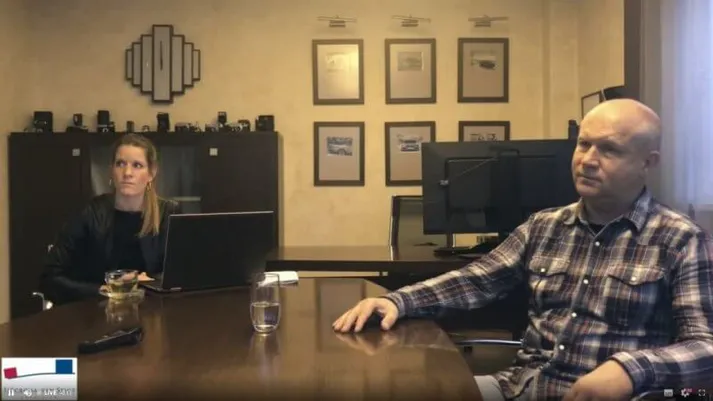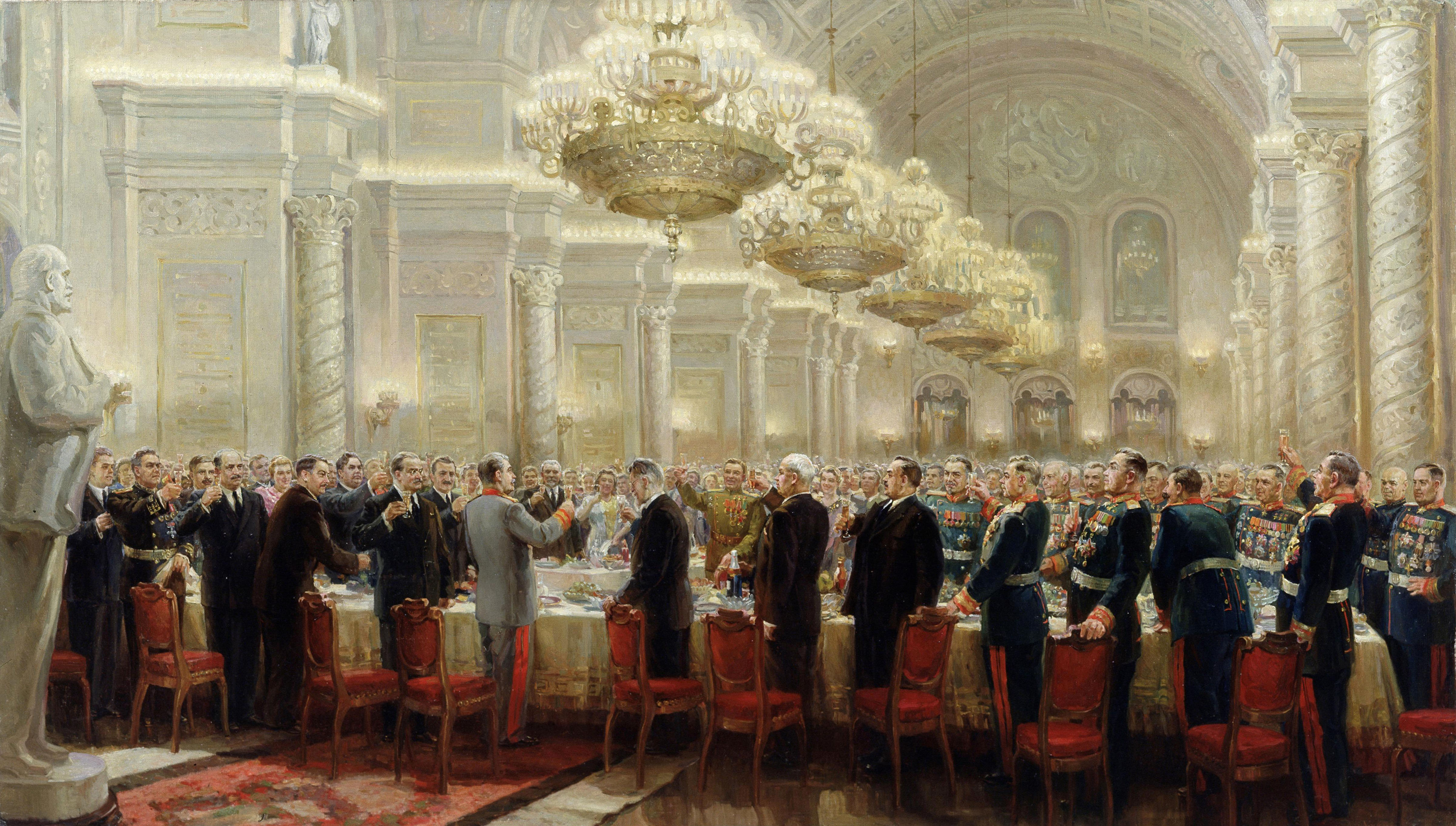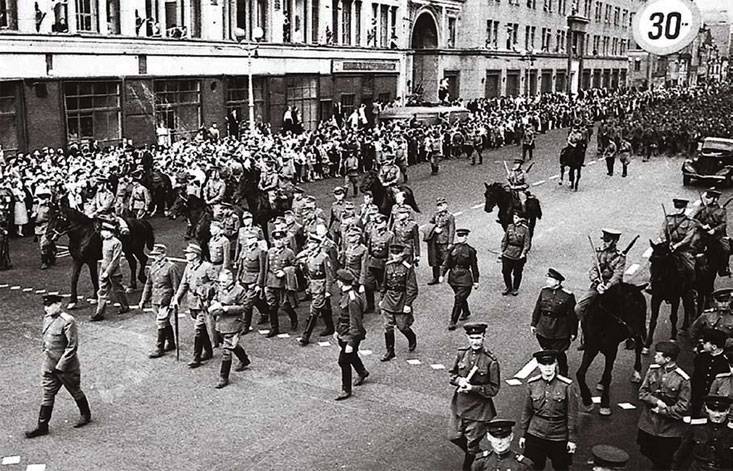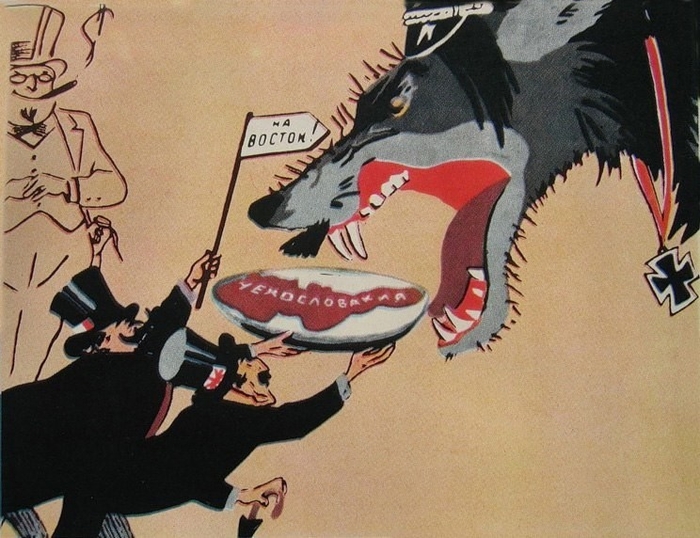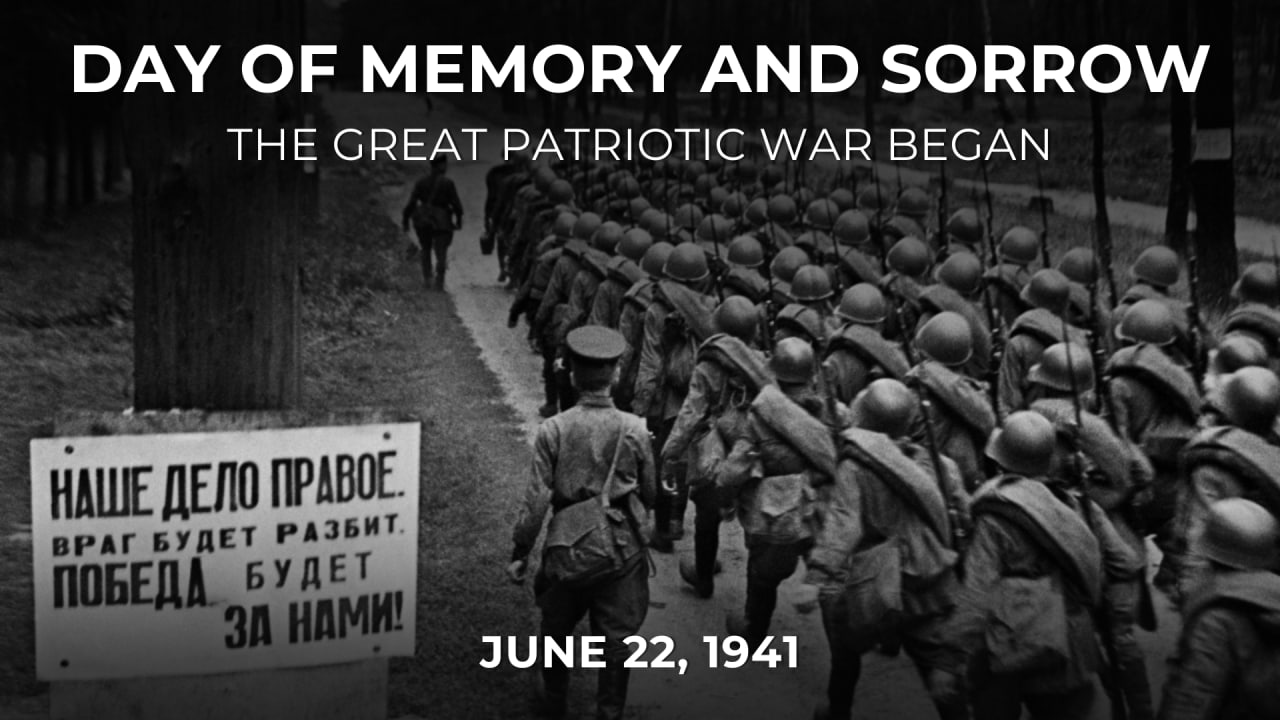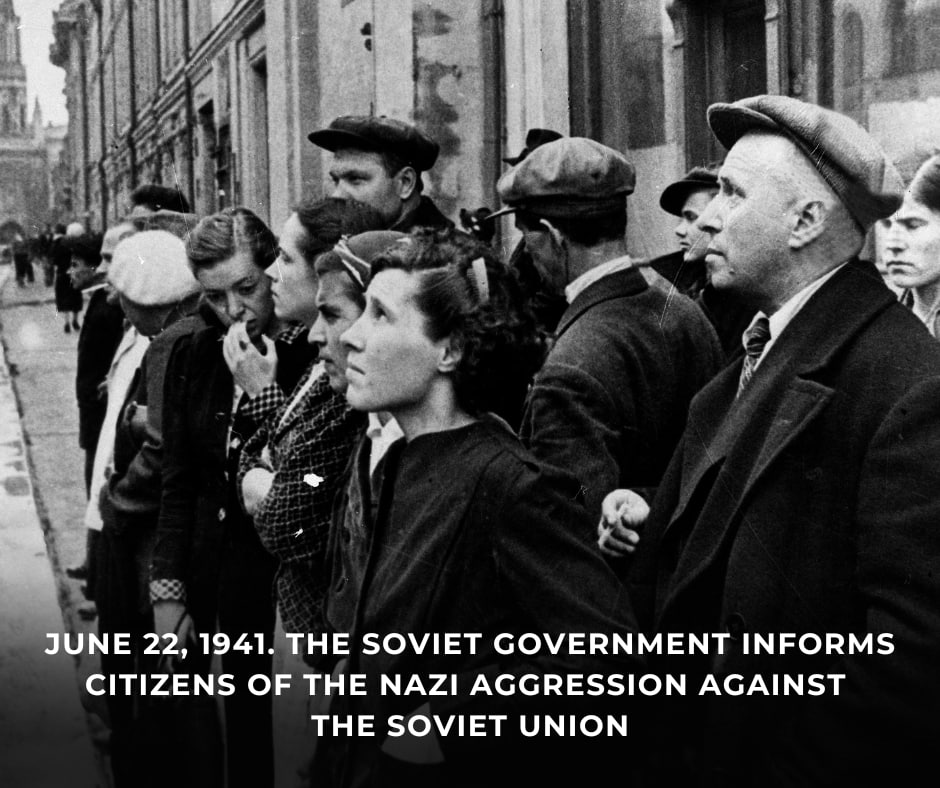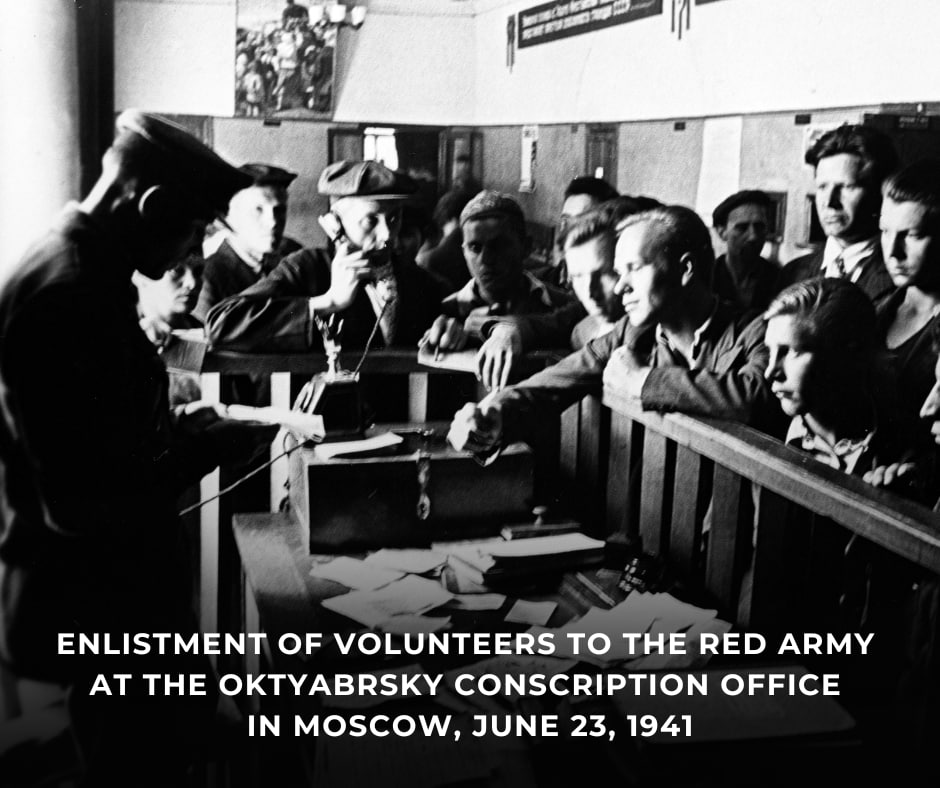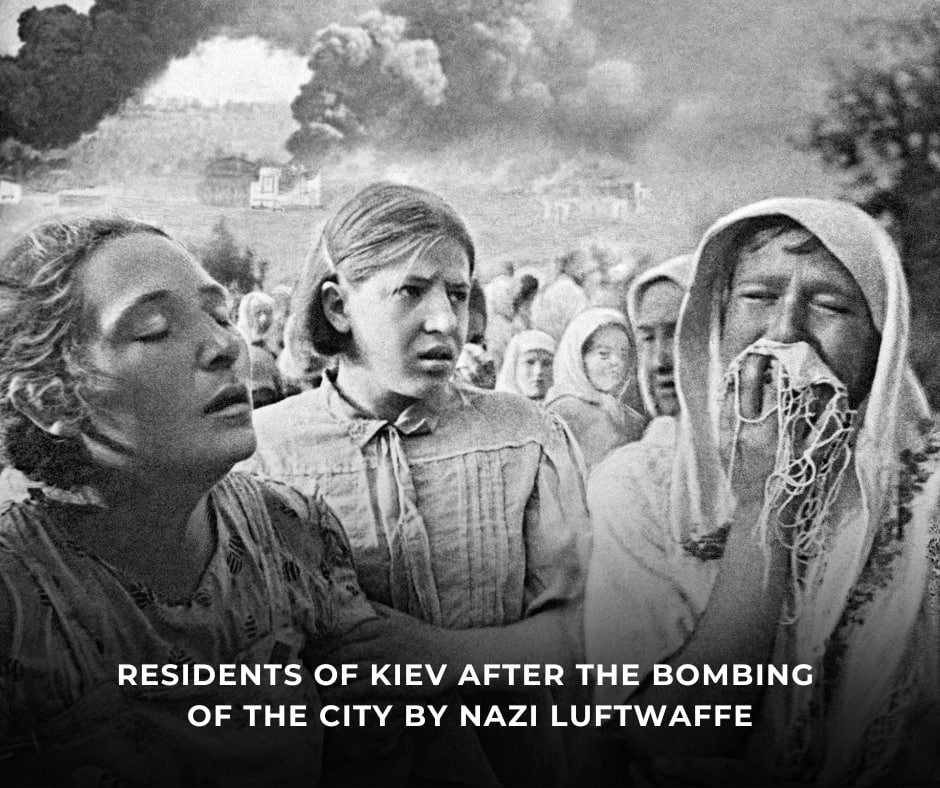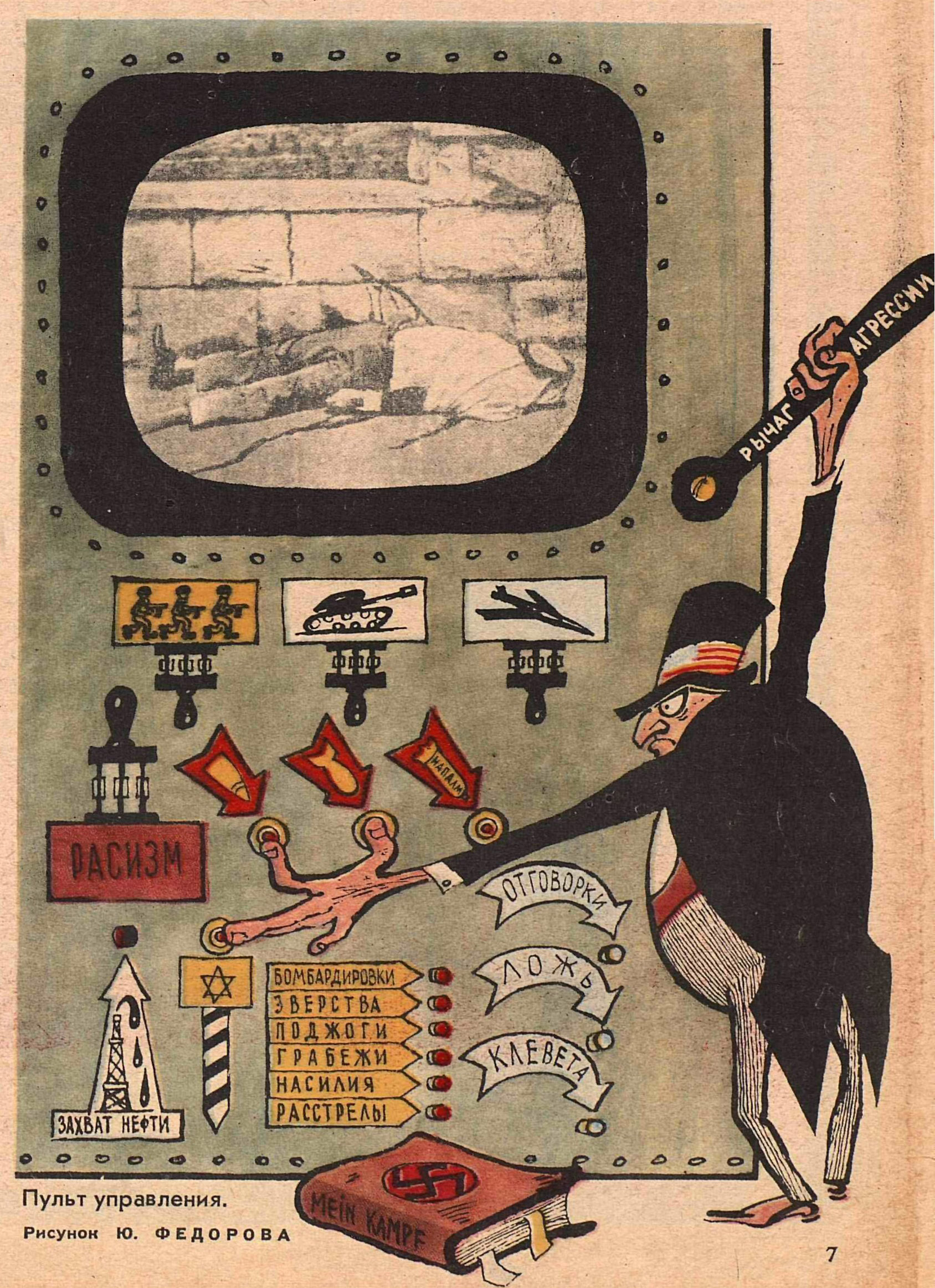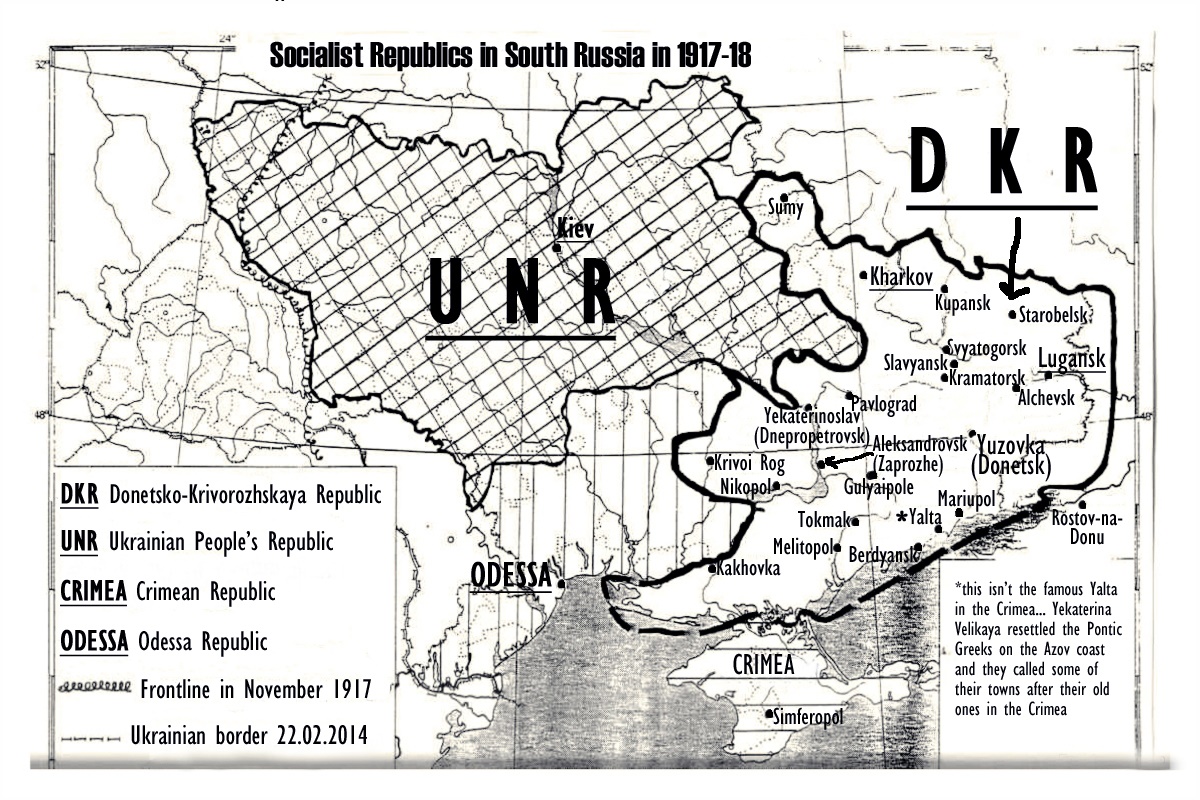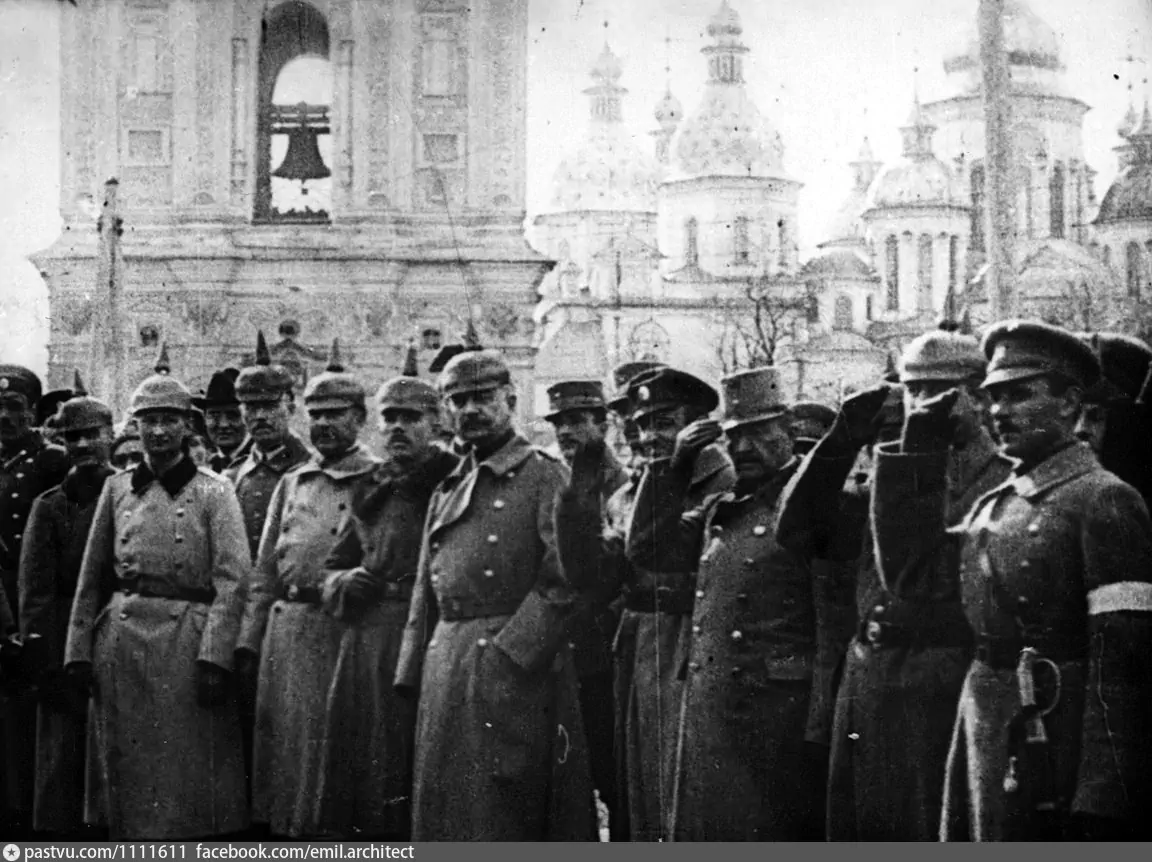Reading time: 16 minutes
 On June 24, 1945, the first parade dedicated to the victory over Germany in the Great Patriotic War was held in Moscow on the Red Square. The combined regiments of the fronts, the combined regiment of the people’s Commissariat of defence, the combined regiment of the Navy, military academies, military schools, and the troops of the Moscow garrison were brought to the Victory Parade. The parade was commanded by Marshal of the Soviet Union K. K. Rokossovsky, and the parade was taken by Marshal of the Soviet Union G. K. Zhukov. From the podium of the Lenin Mausoleum, Stalin watched the parade, as well as Molotov, Kalinin, Voroshilov, Budyonny and other members of the Politburo.
On June 24, 1945, the first parade dedicated to the victory over Germany in the Great Patriotic War was held in Moscow on the Red Square. The combined regiments of the fronts, the combined regiment of the people’s Commissariat of defence, the combined regiment of the Navy, military academies, military schools, and the troops of the Moscow garrison were brought to the Victory Parade. The parade was commanded by Marshal of the Soviet Union K. K. Rokossovsky, and the parade was taken by Marshal of the Soviet Union G. K. Zhukov. From the podium of the Lenin Mausoleum, Stalin watched the parade, as well as Molotov, Kalinin, Voroshilov, Budyonny and other members of the Politburo.
We celebrated the 80th anniversary of the Victory Parade at our Telegram channel “Beorn And the Shieldmaiden”, starting at this post.
From the Telegram post of the Russian Foreign Ministry:
During the preparations for the Parade 12 regiments were created and trained, representing all the Red Army Fronts that took part in the fighting against the Nazi invaders. Each regiment included over 1,000 distinguished & honoured Red Army soldiers and officers, Heroes of the Soviet Union and cavaliers of the Order of Glory.
The ceremony involved in total 298 infantry platoons, 13 cavalry squadrons, and 350 artillery batteries, including 386 guns and 613 armoured vehicles. Commander of the Moscow Military District, Colonel General Pavel Artemyev, was in charge of organising and overseeing the Parade.
The Victory Parade began at 10 am and lasted for two hours. Soviet Union Marshal Konstantin Rokossovsky commanded the units, while Marshal Georgy Zhukov reviewed the parade teams. The Parade was in many aspects highly symbolic, even as regards the breeds and colours of the horses rode by the two great Soviet Marshals — Zhukov rode a light grey Tersk horse as a symbol of glory and victory, while Rokossovsky rode a black horse symbolising honour and grace.
After the Marshals reviewed the units and greeted the participants, a military orchestra with 1,400 musicians marched into the centre of Red Square to perform “Glory,” a patriotic song composed by Mikhail Glinka. Georgy Zhukov then ascended the podium on the Lenin Mausoleum to deliver his famous address:
“Mankind has been liberated from German Nazism — humanity’s deadliest enemy.
For three years, the Red Army had to fight against Germany and its satellites on its own. Throughout the entire war, the Nazi army had to keep its main forces on the Soviet-German front — this is where the Reich’s war machine was crushed, and this is where the victorious ending of the war in Europe came from.”
When Marshal Zhukov concluded his remarks, the state orchestra performed the national anthem, and 50 rounds of fireworks were fired from the Kremlin walls. This is when the Red Army columns — over 40’000 soldiers and officers and 1,850 units of armour vehicles and military equipment.
At the end of the celebrations, to the sound of 80 drums beating, a column of Soviet soldiers threw 200 banners of the defeated Nazi Wehrmacht onto the ground near the Mausoleum. These banners had been selected by a special commission from among 900 trophy banners brought from Germany.
The Parade ended at noon to the tune of the Moscow Garrison’s composite brass orchestra. Overall, 24 marshals, 249 generals, 2,536 officers, and 31,116 non-commissioned officers and soldiers took part in the procession. The celebrations culminated with an image of the Order of Victory floating in the sky.
After the June 24, 1945, the Victory Day parades were held in the USSR 3 more times – at the anniversary dates on the May 9, 1965, 1985 and 1990. Next time it was conducted in already Russia on the 9th of May 1995, and then annually after that date. In the USSR military parades were customarily held annually on the 7th of November, commemorating the October Revolution.
While translating Zhukov’s speech, based on the Russian transcript here, we found a disconcerting detail: the B/W documentary was edited to remove any reference to Stalin’s contribution and guidance! It seems the editing was done during the time, when Hrushev waged his personal vendetta against Stalin’s memory. The colour version, though it does not include Zhukov’s speech, has Stalin “rehabilitated” and properly referenced.
‼️ It was only on the 75th anniversary of the Victory, that Georgy Zhukov’s speech could be heard for the first time without redactions — in the two and a half reconstructed video of the Day of the Victory Parade, presented in a separate article.
Backup at Rumble. An older version on YouTube
This film was the first colour film in the USSR, shot on single tape (previously, a three-colour method was used for colour films). The Victory parade on June 24, 1945 was filmed on German trophy film from the warehouse of “Agfa”. After the film was shot, it turned out that most of the tape had colour defects. As the colour films were not made in the USSR, there was not enough experience in working on colour correction. Therefore, the entire film was transferred to B/W film, and a 19-minute film was edited from the material that was of suitable quality. And many years later, in 2004, the Central State Archive of Film and Photo Documents restored the colour version of the film. The film was restored, removing all mechanical damage to the film, restoring the colour and transferring the image to modern colour film.
Backup at Rumble. An older version on YouTube
👉 Source of the B/W is the USSR State Television and Radio Fund via the Russian MFA.
The article was originally published on May 9, 2020 with video uploaded to YouTube Back then, in order to re-upload the film the subtitles, the footage of the B/W film was downloaded from the Classics of the Soviet Cinema YouTube channel. There was one quote in a viewer comment there, which was especially poignant (note that 9 million is the number of combatant losses according to the early estimates after the war, the total number of the Soviet citizens who lost their lives during the Great Patriotic War is 27 million people):
Once my father expressed a piercing and terrible thought: “Ten thousand soldiers and officers of the armies and fronts participated at the principal Parade in honour of the Victory Day on June 24, 1945. The passage of the parade “boxes” of troops lasted thirty minutes. And you know what I thought? During the four years of the war, the losses of our army amounted to almost nine million dead. And each one of them, who gave the most precious thing to Victory – their lives! – is worthy to walk in that parade on the Red Square. So, if all the dead were put in parade formation, then these “boxes” would go through Red Square for nineteen days… ” and I suddenly, as if in reality, imagined this parade. Parade “boxes” of twenty by ten. One hundred and twenty steps a minute. In windings and boots, overcoats, and jackets, in caps, earflaps, “budenovki”, helmets, caps. And for nineteen days and nights this continuous stream of fallen battalions, regiments, and divisions would have passed through the Red Square. Parade of the heroes, parade of the winners. Think about it! Nineteen days!
— V. Shurygin
Continue reading →

